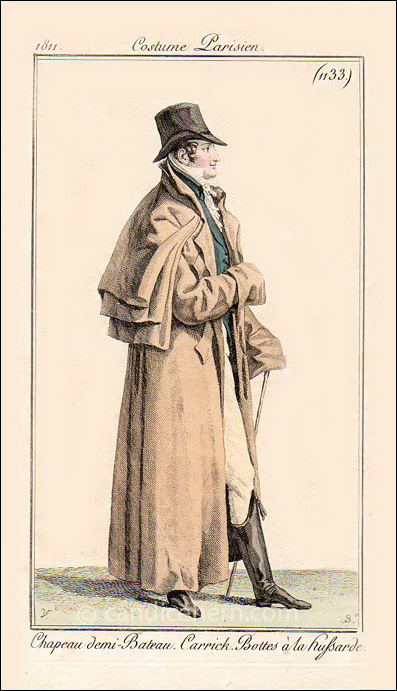"There are," he said, "two lines along which man's development proceeds, the line of
knowledge and the line of being. In right evolution the line of knowledge and the line
of being develop simultaneously, parallel to, and helping one another. But if the line of
knowledge gets too far ahead of the line of being, or if the line of being gets ahead of
the line of knowledge, man's development goes wrong, and sooner or later it must
come to a standstill.
"People understand what 'knowledge' means. And they understand the possibility of
different levels of knowledge. They understand that knowledge may be lesser or
greater, that is to say, of one quality or of another quality. But they do not understand
this in relation to 'being.' 'Being,' for them, means simply 'existence' to which is
opposed just 'non-existence.' They do not understand that being or existence may be of
very different levels and categories.
[...]
And they do not understand that knowledge depends on being.
Not only do they not understand this latter but they
definitely do not wish to understand it. And especially in Western culture it is
considered that a man may possess great knowledge, for example he may be an able
scientist, make discoveries, advance science, and at the same time he may be, and has
the right to be, a petty, egoistic, caviling, mean, envious, vain, naive, and absent
minded man. It seems to be considered here that a professor must always forget his
umbrella everywhere.
"And yet it is his being. And people think that his knowledge does not depend on
his being. People of Western culture put great value on the level of a man's knowledge
but they do not value the level of a man's being and are not ashamed of the low level
of their own being. They do not even understand what it means. And they do not
understand that a man's knowledge depends on the level of his being.
"If knowledge gets far ahead of being, it becomes theoretical and abstract and
inapplicable to life, or actually harmful, because instead of serving life and helping
people the better to struggle with the difficulties they meet, it begins to complicate
man's life, brings new difficulties into it, new troubles and calamities which were not
there before.
"The reason for this is that knowledge which is not in accordance with being cannot
be large enough for, or sufficiently suited to, man's real needs. It will always be a
knowledge of one thing together with ignorance of another thing; a knowledge of the
detail without a knowledge of the whole; a knowledge of the form without a
knowledge of the essence.
"Such preponderance of knowledge over being is observed in present-day culture.
The idea of the value and importance of the level of being is completely forgotten.
And it is forgotten that the level of knowledge is determined by the level of being.
Actually at a given level of being the possibilities of knowledge are limited and finite.
Within the limits of a given being the quality of knowledge cannot be changed, and
the accumulation of information of one and the same nature, within already
known limits, alone is possible. A change in the nature of knowledge is possible only
with a change in the nature of being.
"Taken in itself, a man's being has many different sides. The most characteristic
feature of a modem man is the absence of unity in him and, further, the absence in him
of even traces of those properties which he most likes to ascribe to himself, that is,
'lucid consciousness,' 'free will,' a 'permanent ego or I,' and the 'ability to do.' It may
surprise you if I say that the chief feature of a modem man's being which explains
everything else that is lacking in him is sleep.
"A modern man lives in sleep, in sleep he is born and in sleep he dies. About sleep,
its significance and its role in life, we will speak later. But at present just think of one
thing, what knowledge can a sleeping man have? And if you think about it and at the
same time remember that sleep is the chief feature of our being, it will at once become
clear to you that if a man really wants knowledge, he must first of all think about how
to wake, that is, about how to change his being.
"Exteriorly man's being has many different sides: activity or passivity;
truthfulness or a tendency to lie; sincerity or insincerity; courage, cowardice; self
control, profligacy; irritability, egoism, readiness for self-sacrifice, pride, vanity,
conceit, industry, laziness, morality, depravity; all these and much more besides make
up the being of man.
"But all this is entirely mechanical in man. If he lies it means that he cannot help
lying. If he tells the truth it means that he cannot help telling the truth, and so it is
with everything. Everything happens, a man can do nothing either in himself or
outside himself.
"But of course there are limits and bounds. Generally speaking, the being of a
modem man is of very inferior quality. But it can be of such bad quality that no
change is possible. This must always be remembered. People whose being can still be
changed are very lucky. But there are people who are definitely diseased, broken
machines with whom nothing can be done. And such people are in the majority. If
you think of this you will understand why only few can receive real knowledge. Their
being prevents it.
"Generally speaking, the balance between knowledge and being is even more
important than a separate development of either one or the other. And a separate
development of knowledge or of being is not desirable in any way. Although it is
precisely this one-sided development that often seems particularly attractive to
people.
"If knowledge outweighs being a man knows but has no power to do. It is useless
knowledge. On the other hand if being outweighs knowledge a man has the power to
do, but does not know, that is, he can do something but does not know what to do.
The being he has acquired becomes aimless and efforts made to attain it prove to be
useless.
[...]
"In order to understand this and, in general, the nature of knowledge and the nature
of being, as well as their interrelation, it is necessary to understand the relation of
knowledge and being to 'understanding.'
"Knowledge is one thing, understanding is another thing.
"People often confuse these concepts and do not clearly grasp what is the difference
between them.
"Knowledge by itself does not give understanding. Nor is understanding increased
by an increase of knowledge alone. Understanding depends upon the relation of
knowledge to being. Understanding is the resultant of knowledge and being. And
knowledge and being must not diverge too far, otherwise understanding will prove to
be far removed from either. At the same time the relation of knowledge to being does
not change with a mere growth of knowledge. It changes only when being grows
simultaneously with knowledge. In other words, understanding grows only with the
growth of being.
"In ordinary thinking, people do not distinguish understanding from knowledge.
They think that greater understanding depends on greater knowledge. Therefore they
accumulate knowledge, or that which they call knowledge, but they do not know how
to accumulate understanding and do not bother about it.
"And yet a person accustomed to self-observation knows for certain that at different
periods of his life he has understood one and the same idea, one and the same thought,
in totally different ways. It often seems strange to him that he could have understood
so wrongly that which, in his opinion, he now understands rightly. And he realizes, at
the same time, that his knowledge has not changed, and that he knew as much about the given
subject before as he knows now. What, then, has changed? His being has changed.
And once being has changed understanding must change also.



 I've been an avid reader since childhood, and after I began to have my eye issues in 2013 and became unable to read more than a dozen pages of print without my eyes starting to hurt, I gratefully turned to audiobooks which I've "read" exclusively ever since and don't know what I'd do without.
I've been an avid reader since childhood, and after I began to have my eye issues in 2013 and became unable to read more than a dozen pages of print without my eyes starting to hurt, I gratefully turned to audiobooks which I've "read" exclusively ever since and don't know what I'd do without.
 . I always read in busses but today I read my romantic book and suddenly I felt good, I forgot completely the masqued beings and the situation of horror where we are all immersed, and everything. I entered literally in the story (one of Mary Balogh) and started to put myself inside the story, the beauty and also the conflict. It was like taking a pill where time does not exist anymore, space also, where I am loreta in a strange bus but also loreta outside in a park with people that are becoming my friends and walking under a blue sky. Finally the bus disappeared, the strange beings with masks also. This little trip gave me energy and joy.
. I always read in busses but today I read my romantic book and suddenly I felt good, I forgot completely the masqued beings and the situation of horror where we are all immersed, and everything. I entered literally in the story (one of Mary Balogh) and started to put myself inside the story, the beauty and also the conflict. It was like taking a pill where time does not exist anymore, space also, where I am loreta in a strange bus but also loreta outside in a park with people that are becoming my friends and walking under a blue sky. Finally the bus disappeared, the strange beings with masks also. This little trip gave me energy and joy.